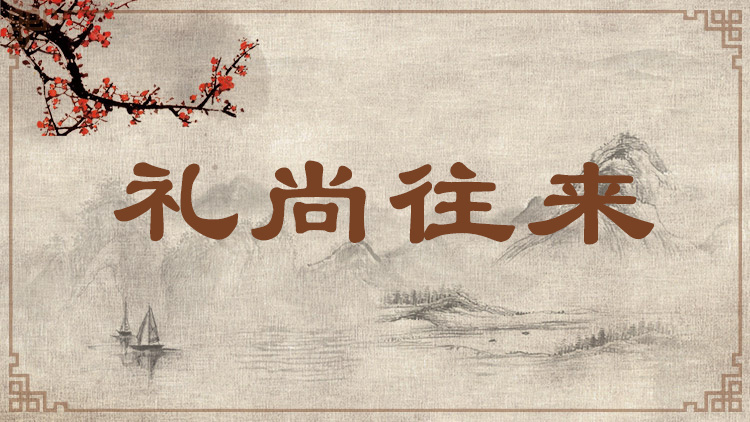Reciprocity as a Social Norm

礼注重相互往来和互惠。“礼”即礼制;“尚”即崇尚、注重。指人与人之间、组织与组织之间、国家与国家之间的交往互动,其中隐含着对等互惠的人际、国际关系思想。有时也表示用对方对待自己的态度和方式去对待对方,类似于“即以其人之道,还治其人之身”。
Etiquette requires reciprocity and mutual benefit. It refers to contacts and interactions between individuals, between organizations, and between nations. It implies equality and mutual benefit in interpersonal and inter-state relations. Sometimes, it also means that one should treat the other party in the way the other party treats you. It is similar to "Treating the other person the way he treats you."
引例 Citation:
◎礼尚往来。往而不来,非礼也;来而不往,亦非礼也。人有礼则安,无礼则危。(《礼记·曲礼上》)
礼注重的是往来互惠。我给人礼物而人未回馈,这是违反礼的;人给我礼物而我未回赠,这也是不合乎礼的。人做事符合礼就会平安无事,违反礼就会危及自身。
Etiquette values reciprocity and mutual benefit. It would go against it if someone who has received a gift does not reciprocate such goodwill. When one acts according to such etiquette, one will enjoy peace. Without it, one will cause trouble. (The Book of Rites)
推荐:教育部 国家语委
供稿:北京外国语大学 外语教学与研究出版社
责任编辑:钱耐安





